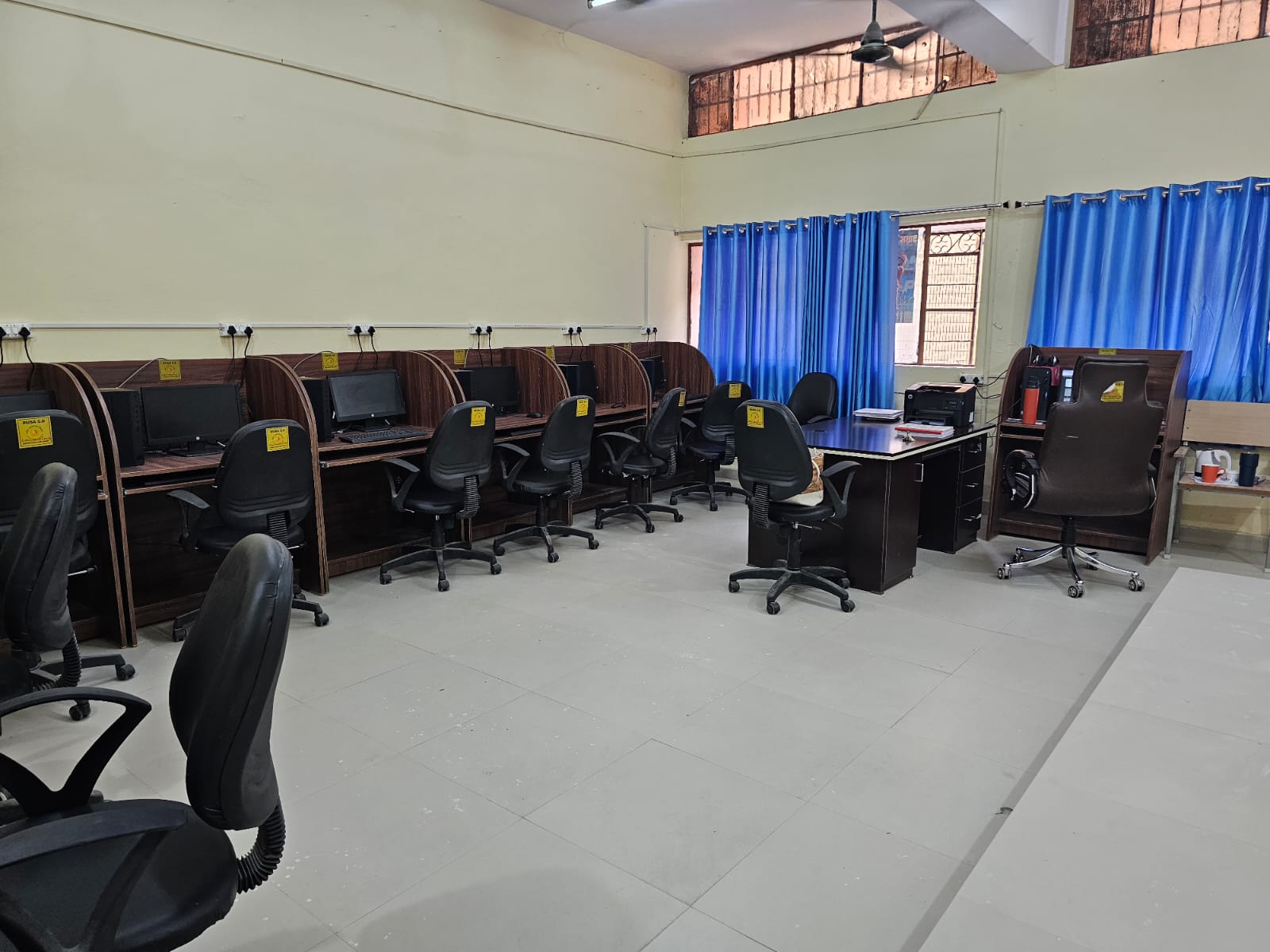Department of English
- About
- Faculty
- Syllabus
- PSOs (UG)
- PSOs (PG)
- Subjects(UG)
- Subjects(PG)
- Infrastructure
- Lab Guidelines
- Achievements
- Activities
- Collaborations
- Time Table
- Debating Society
Department at a Glance:
Year of Establishment | 1965 |
Courses Offered | ● UG w.e.f. 1965 ● PG w.e.f. 1993
|
Number of Teaching Posts Sanctioned | 04 |
Number of Teaching Posts Filled | 04 |
The Department of English at NSCBM Govt. College Hamirpur has a rich history, commencing its journey in 1965 with the introduction of undergraduate classes. In 1993, the department expanded its offerings by introducing postgraduate programs, providing 30 seats for aspiring students.
Over the years, the department has made significant improvements to its infrastructure and facilities. The faculty room is furnished with comfortable and well-maintained furniture, ensuring a conducive learning environment for both students and faculty members. Recognizing the need to adapt to changing times, the department embraced technological advancements.
In 2018, the department took a significant step forward by acquiring language lab software, along with 10 plus one consoles. In 2021, the systems were shifted to a dedicated language laboratory (Room 13). To cater to the different academic needs of students, the department boasts one dedicated classroom (Room 11) exclusively for postgraduate classes. Meanwhile, undergraduate classes are conducted in classrooms located in the PTA block. This segregation ensures focused learning environments tailored to the respective student groups.
In keeping up with the advancements in technology and leveraging the power of the internet, the department has embraced online communication methods for all department-related matters. Utilizing exclusive WhatsApp groups for each class, the department shares notices, timetables, and other important information through online mode, promoting efficient and paperless communication.
To cater to the scholarly needs of its students and faculty, the department has subscribed to various online journals. This subscription allows students and faculty members to stay updated with the latest research and developments in the field of English language and literature. Moreover, the department benefits from the INFLIBNET software utilized by the college library. This software provides access to a vast collection of e-books and e-journals covering a wide range of topics. The Department also runs a small book bank wherein students can donate their old books and get new ones issued.
| Sr. No. | Name | Designation | Profile |
| 1. | Dr. Mukul
| Assistant Professor | View |
| 2. |
Ms. Neeraj Sharma
| Assistant Professor | View |
| 3. |
Ms. Apoorva Thakur | Assistant Professor | View |
Outcomes of the Program:
- Communication Skills: The course aims to develop the fundamental language competencies of Listening, Speaking, Reading, and Writing (LSRW). By focusing on these skills, students will:
- Listen effectively in English to comprehend and learn.
- Speak English fluently with correct accent and pronunciation.
- Read, comprehend, and utilize written materials in English, including graphs, charts, and displays.
- Write effectively in English for personal or professional purposes.
- Cognitive Skills: The course aims to facilitate holistic student development through a series of academic experiences. Students are expected to acquire the following cognitive skills:
- Apply logical thinking to evaluate situations, solve problems, and make decisions.
- Cultivate novelty, creativity, critical and analytical thinking, in addition to academic excellence.
- Access and apply specialized knowledge from the field of literature.
- Cultivate interest in linguistic and aesthetic aspects of the language.
- Expand their perspective through exposure to diverse cultures, traditions, and literary creations.
- Personal Management Skills: These skills encompass our relationships with others and our approach to life and work. Upon completion of the program, students will be able to:
- Exhibit positive attitudes and behaviours.
- Foster high self-esteem and confidence.
- Demonstrate honesty, integrity, and personal ethics.
- Embrace a positive attitude toward learning, personal growth, and well-being.
- Display initiative, energy, and persistence.
- Set goals and prioritize effectively in both work and personal life.
- Plan and manage time, finances, and resources to achieve goals, taking accountability for their actions.
- Adapt positively to change.
- Recognize and respect the diversity and individual differences of others.
- Generate creative ideas and suggestions to accomplish tasks.
- Teamwork Skills:
- Comprehend and contribute to team goals.
- Operate within the group’s culture.
- Collaborate with others to plan, make decisions, and support outcomes.
- Respect the thoughts and opinions of fellow group members.
- Engage in effective collaboration to achieve group results.
Programme Outcomes (MA English (CBCS) 2022-23)
MA English Programme proposes to offer an overview of disparate literatures that have been produced spatial-temporally in various languages and genres. The purpose is to facilitate a detailed study of the established classics and acknowledged masterpieces across the world, commencing from the fourteenth century, when English as a language was acknowledged and appreciated at par with Latin and French. The programme targets to develop an understanding of the theoretical and critical perspectives covered under different genres of literature so as to impart knowledge of the historical background of English literature with its continuing influence in the subsequent eras. The students are trained to develop analytical and critical propositions to strengthen the requisite acuity in the field of research.
The programme intends to develop comprehensive insights into the cultural nuances and experiential livings of numerous societies across the globe, The programme comprises literature and a significant component of linguistics to groom and nurture the students into competent assets, employable in multiple avenues that a specialization in English opens up in the professional world. The course attempts to inculcate the principles of “gender sensitivity”, “Social responsibility,” “community service” and “national pride”, which are the underlining tenets of this programme.
Programme Specific Outcomes:
MA English Programme specifically aspires to inculcate the following in the students:
- Acquaintance with the writers and theorists of different ages across the world along with their concerns, ideas and perspectives.
- Application of the knowledge of language and literature in different spheres of life.
- A critical acumen to analyze and evaluate the scholarly works of English Literature.
- Interpersonal skills and ethical values for the holistic development of the students.
- Expertise in writing and oratory skills in a variety of formats, such as articles, essays, critical reviews of literary texts, debates, declamations, panel discussions and seminar presentations.
Course Outcomes: Programme: BA with English
Course Outcomes of English
Year | Paper Code | Course Name | Credit | Course Type | Course Outcome |
1st | ENG CE 101 | English-1 Core English (Compulsory for B.A. & B. Com | 6 | Core Eng. Compulsory |
|
ENG DSC 102 | DSC-1A English Literature 1 (Essays, Stories & Poems) | 6 | Core |
Discipline Specific Core (DSC) courses serve as the foundation for students to acquire essential knowledge and skills in their discipline, while also introducing them to diverse writing genres.
| |
ENG DSC 103 | DSC-1B English Literature 2 (Poems, Short Stories & Essays) | 6 | Core | ||
ENG AECC 104 | AECC-2 Writing Skills | 4 | Ability Enhancement Compulsory Course |
| |
2nd | ENG CE 201 | English-2 Core English (Compulsory for B.A. & B. Com | 6 | Core Eng. Compulsory |
|
ENG DSC 202 | DSC-1C British Literature (Play & Novel) | 6 | Core |
Discipline Specific Core (DSC) courses serve as the foundation for students to acquire essential knowledge and skills in their discipline, while also introducing them to diverse writing genres.
| |
ENG DSC 202 | DSC-1D Literary Cross Currents | 6 | Core | ||
ENG AECC/SEC 204 | AECC/SEC-1 Creative writing, Book & Media Reviews | 4 | Ability Enhancement Elective Courses/Skill Enhancement Courses |
Skill Enhancement (SEC) courses focus on value-based training, providing practical experiences to refine skills and competencies.
| |
ENG AECC/SEC 204 | AECC/SEC-2 Translation Studies & Principles of Translation (Basic Concepts & Readings) | 4 | |||
3rd | ENG AEEC/SEC 301 | AEEC/SEC-3 Technical Writing | 4 | Ability Enhancement Elective Courses/Skill Enhancement Courses |
Skill Enhancement (SEC) courses focus on value-based training, providing practical experiences to refine skills and competencies.
|
ENG AEEC/SEC 302 | AEEC/SEC-3 Business Communication | 4 | |||
ENG DSE 303 | DSE-1A Soft Skills | 6 | Discipline Specific Elective Courses |
Discipline Specific Elective (DSE) courses offer advanced opportunities for students to delve into other domains and further develop their skills.
| |
ENG DSE 304 | AEEC/SEC-3 Business Communication | 4 | |||
ENG GE 305 | GE-1 Literature from Himachal | 6 | Generic Elective Courses |
Generic Elective (GE) courses promote interdisciplinary learning by offering students from various disciplines the chance to study English courses, thereby expanding the breadth of their knowledge.
| |
ENG GE 306 | GE-2 Contemporary India: Women & Empowerment | 6 |
Course Outcomes: Programme: MA English
Course Outcomes of English
The Master of Arts in English program offers a comprehensive study of English language and literature. It provides students with a broad understanding of various literary works and the opportunity to specialize in English literature. By analyzing a wide range of texts, students develop strong reading comprehension, writing, and critical thinking skills. Graduates of this program can pursue careers in teaching, translation, media, journalism, publishing, advertising, public relations, arts, language, communication, and writing.
Programme Structure
Semester | Subject Code | Paper Title | Marks |
1st Semester | Course I | History of English Literature from Chaucer to 1800 | 75 |
Course II | Poetry from Chaucer to Pope: | 75 | |
Course III | Shakespeare and his Contemporaries | 75 | |
Course IV | Nineteenth Century Fiction | 75 | |
2nd Semester | Course V | History of English Literature: Nineteenth and Twentieth Centuries | 75 |
Course VI | Romantic and Victorian Poetry | 75 | |
Course VII | Modern Fiction | 75 | |
Course VIII | Growth and Structure of English Language | 75 | |
3rd Semester | Course IX | Literary Criticism from Aristotle to T.S. Eliot | 75 |
Course X | Modern British and American Poetry | 75 | |
Course XI | Modern British Drama | 75 | |
Course XII | World Fiction | 75 | |
4th Semester | Course XIII | Contemporary Literary Theory | 75 |
Course XIV | American Drama / African / Australian / Canadian Literature | 75 | |
Course XV | Indian Writing in English | 75 | |
Course XVI | Indian Writing in Translation OR Literature and Gender | 75 |
English Language Laboratory – Rules and Guidelines
- It is compulsory for the students to write down the Entry and Exit time in the log book available inside the lab.
- Use of cell phones is not permitted. Cell phones are to be kept on ‘Silent Mode’ inside the lab.
- Students are strictly advised to use headphones while using the audio component of the software.
- Lab is to be used for academic purpose only. Any kind of chatting, casual internet surfing and misuse of internet or the computer is strictly prohibited.
- Students are strictly advised to shut down the system properly before leaving.
- Eatables are prohibited inside the lab.
- Unwanted items are not to be carried inside the lab.
- Any kind of damage caused to the computer, headphones and chairs of the language laboratory will lead to paying of a penalty fee.
- Cleanliness and Discipline is to be maintained inside the lab, at all times.
Violation of these rules will result in disciplinary action.
Students achievements
| S.No. | Session | Meeting/Activity |
| 1 | 2023-24 | Meet and Greet with the author Onkar Sharma |
| 2 | 2019-20 | Two Day Workshop on Enhancing Communication Skills through use of Technology 2019 |
| 3 | 2023-24 | Building a Path to a Bright Future |
| 4 | 2023-24 | A Tribute to the Literary Legacy of Jayant Mahapatra |
| 5 | 2023-24 | Invited Lecture on Natyashastra |
| 6 | 2023-24 | Lecture Series on Indian Literary Theory |
MoUs signed







